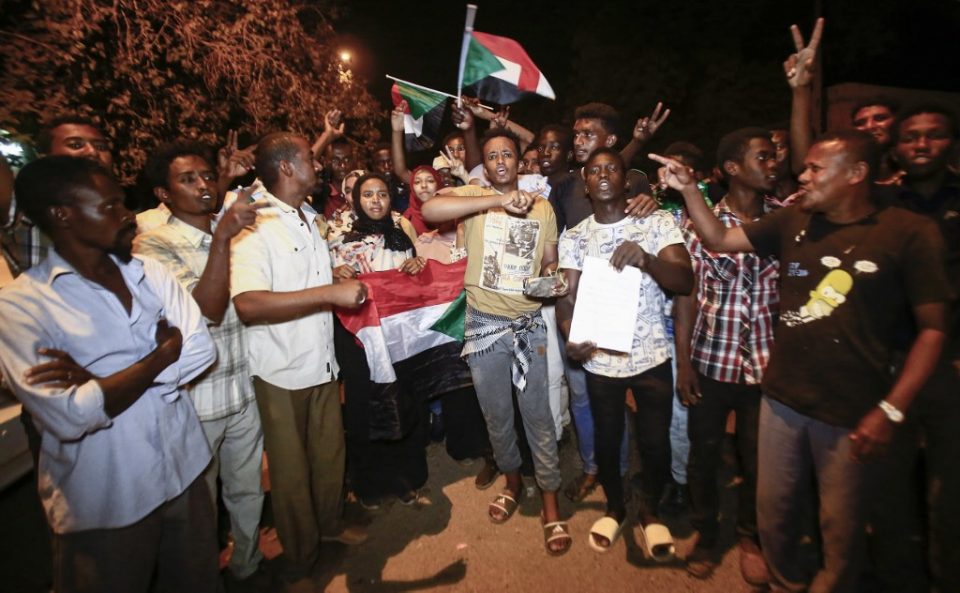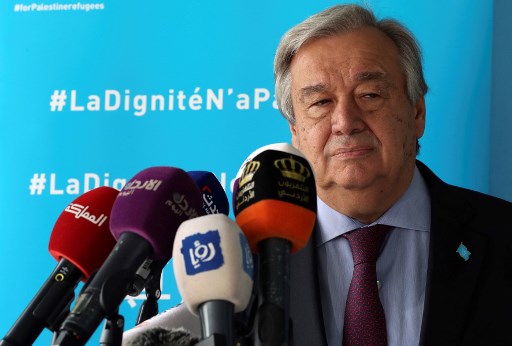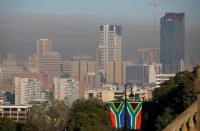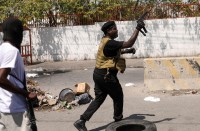
(Eagle News) – United Nations chief António Guterres on Thursday reiterated his call for calm and “utmost restraint by all” as he stressed that the “democratic aspirations of the Sudanese people” need to be realized through “an appropriate and inclusive transition process”.
The statement was made following the overthrow and arrest of President Omar al-Bashir by order of the country’s new military governing council.
In a statement issued in New York by his Spokesperson, the Secretary-General said he would continue to follow development “very closely” and reiterated his call for calm and restraint.
Mr. Guterres said in his statement that the UN “stands ready to support the Sudanese people as they chart a new way forward.”

Earlier in the day, a group of UN human rights experts condemned reports of “excessive use of force against peaceful protesters in Sudan” during the past six days of heightened protest leading up to the overthrow of President Bashir, when tens-of-thousands took to the streets, holding a sit-in outside army headquarters in central Khartoum.
“While taking note of the latest reports that a military council is being formed”, the experts called on the authorities to respond to “the legitimate grievances of the people.”
In announcing the end of Mr. Bashir’s rule via State television, Sudan’s defense minister said that he was being held “in a secure place”, and the army would now oversee a two-year period of transition back to full civilian rule.
But on Thursday night, according to news reports, thousands of Sudanese in the capital Khartoum defied a military curfew which was supposed to keep citizens off the streets from 10pm until 4am, raising fears of fresh violence between security forces and protesters, as well as possible clashes between militia and army units.
An official message carried on State-run media stated that “the armed forces and security council will carry out its duty to uphold peace”, protect citizens’ security, and “citizens’ livelihoods”.
-More than 20 killed, 100 injured in protests-
The United Nations, citing experts, said that more than 20 people have been killed and over 100 injured since 6 April.
They had also received reports of widespread arrests and attacks on journalists by the security forces.
A UN release said that at the sit-in prior to the military takeover, the National Intelligence and Security Services used live ammunition and tear gas to disperse protesters, prompting the army to move in to protect them.
“In this moment of crisis, the exercise of the rights to freedom of expression and freedom of peaceful assembly needs to be protected and guaranteed,” said the UN Special Rapporteur on the rights to freedom of peaceful assembly and of association, Clément Nyaletsossi Voule, and the Special Rapporteur on the right to freedom of opinion and expression, David Kaye.
Protests erupted nearly four months ago when the Government attempted to raise the prices of bread and basic commodities.
“I urge the authorities to lift the national state of emergency and respond to the legitimate grievances of the Sudanese people through inclusive peaceful political process,” Mr. Voule said.
“The Sudanese people, including human rights defenders, have the right to express their views and concerns through peaceful means, in particular on issues concerning fundamental rights,” added Michel Forst, UN Special Rapporteur on the situation of human rights defenders. (with a UN report)








